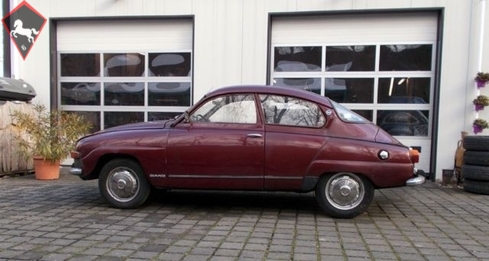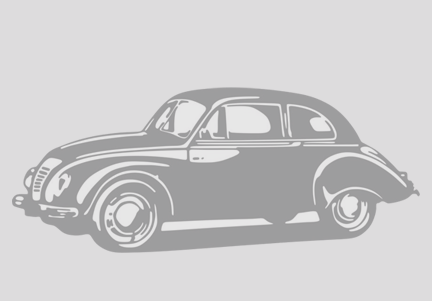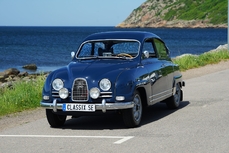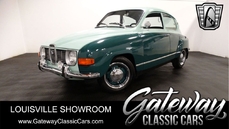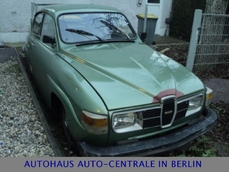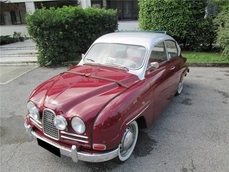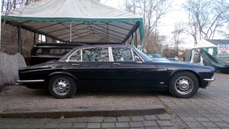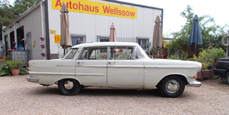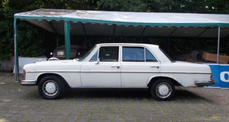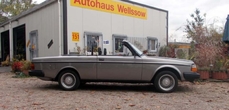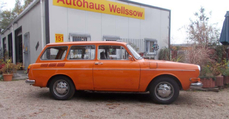Saab 96 V4 1975
General description :
Holländische Papiere, kann also nach TÜV-Abnahme sofort zugelassen werden, Chromzustand und Innenzustand sind altersbedingt akzeptabel, Außenlack wurde an einigen Stellen nachlackiert, Gesamteindruck aus unserer Sicht „vernünftig“ , Am Unterboden wurden einige Schweißarbeiten durchgeführt und versiegelt sodaß der Saab TÜV-fertig ist, technisch wurde er komplett durchgesehen und inspektioniert ( Ölwechsel usw. ), Kompressionsdiagramm mit sehr guten Werten liegt vor, kommen sie doch einfach zur Besichtigung und eine gemütliche Tasse Kaffee vorbei, wir freuen uns auf sie…
Erleben Sie den Fahrspass bei einer Probefahrt. Seit über 25 Jahren sind wir am Ort. Fahrzeuge in vielen Preis- und Altersklassen vorrätig. Auch Young- und Oldtimer. Gerne bieten wir Ihnen eine individuelle und flexible Finanzierung an. Ihr Fahrzeug nehmen wir gerne in Zahlung.
Wir sind auch Samstags von 09:00 – 16:00 und auch Sonntags von 13:00 -17:00 Uhr geöffnet !!
1975 Saab 96 V4 is listed for sale on ClassicDigest in Waldstr. 151DE-51147 Köln Porz by Autohaus Wellssow GmbH for €4790.
Car Facts
Car type : Car Make : Saab Model : 96 Model Version : V4 Engine size : 1.5 Model Year : 1975 Sub type : Sedan Location : Waldstr. 151DE-51147 Köln Porz Vehicle Registration : Undefined
4790 €
Seller Information
Autohaus Wellssow GmbH
Autohaus Wellssow GmbH
+49 (0)2203 290059304
Autohaus Wellssow GmbH
+49 (0)2203 290059304
People who viewed this Saab 96 also viewed similar Saab listed at ClassicDigest
Other cars listed for sale by this dealer
About Saab
Saab, originally an acronym for Svenska Aeroplan Aktiebolaget (Swedish Aeroplane Company), began its journey as an aircraft manufacturer in 1937. Founded in Sweden, Saab's primary focus was on producing fighter planes and military aircraft. Over time, the company diversified its interests and ventured into automobile manufacturing, which eventually led to the creation of quirky yet innovative cars that stood out in the automotive industry.Fighter Plane Manufacturing:
Saab's history in the aviation industry was marked by its production of innovative fighter planes. One of its most iconic aircraft was the Saab 29 Tunnan, introduced in the early 1950s. The Tunnan was notable for its unique design, featuring a barrel-shaped fuselage, which earned it the nickname "The Flying Barrel." It was powered by a single jet engine and became Sweden's first domestically produced jet-powered fighter aircraft.
Following the success of the Tunnan, Saab continued to develop advanced military aircraft. The Saab 35 Draken, introduced in the late 1950s, was another milestone for the company. The Draken was a delta-winged interceptor known for its remarkable speed and distinctive double-delta wing configuration. Its innovative design allowed for excellent maneuverability and performance, making it a significant asset in Sweden's air defense arsenal for several decades.
Transition to Automobile Manufacturing:
In the late 1940s, Saab expanded its operations into the automotive industry. The company's first foray into car manufacturing resulted in the production of the Saab 92, which debuted in 1949. The Saab 92 was a compact and aerodynamic car powered by a two-cylinder, two-stroke engine. Its unconventional design, with a streamlined shape and front-wheel-drive layout, set it apart from other cars of its time.
As Saab continued to innovate, it introduced several notable models in the automotive market. The Saab 99, launched in the late 1960s, was a significant milestone for the company. It featured distinctive styling, including a wraparound windshield and a unique "hockey stick" profile, giving it a recognizable appearance. The Saab 99 also introduced technical advancements such as turbocharging, enhancing performance and fuel efficiency.
The evolution continued with the Saab 900, introduced in the late 1970s, which became one of the company's most iconic models. The Saab 900 was known for its robust build quality, innovative safety features, and unconventional design elements, including the signature wraparound windshield. It offered turbocharged engines and a versatile hatchback body style, catering to a niche market seeking individuality and practicality.
Technical Aspects and Quirks:
Saab cars were characterized by their technical innovations and unique features. Some of the standout technical aspects and quirks of Saab automobiles include:
Turbocharging: Saab was one of the pioneers in popularizing turbocharged engines in passenger cars, significantly enhancing power output without sacrificing fuel efficiency.
Safety Innovations: Saab prioritized safety and introduced various safety features, including reinforced passenger compartments, impact-absorbing structures, and advanced braking systems.
Aircraft-Inspired Design: The company incorporated design elements inspired by its aviation heritage, such as aerodynamic shapes, wraparound windshields, and unconventional styling cues.
Ergonomics and Practicality: Saab cars were known for their comfortable interiors, innovative ergonomics, and practical features like the ignition key placement between the front seats.
Quirkiness: Saab cars often featured unconventional design choices and solutions, appealing to a niche audience seeking something different from mainstream automobile offerings.
Saab's journey from a renowned fighter plane manufacturer to a builder of quirky yet innovative cars highlights its commitment to innovation, unique design, and technological advancement in both the aviation and automotive industries. Despite facing challenges and changes in ownership over the years, Saab's legacy endures through its distinct and unconventional approach to vehicle design and engineering.
